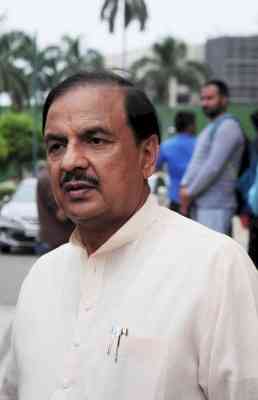Panjab University celebrated Constitution Day
Author(s): City Air NewsChandigarh, November 27, 2016: Panjab University (PU) celebrated the Constitution Day on November 26th to commemorate the day when the constituent Assembly had adopted the Constitution for Independent India. To...

Chandigarh, November 27, 2016: Panjab University (PU) celebrated the Constitution Day on November 26th to commemorate the day when the constituent Assembly had adopted the Constitution for Independent India. To mark the occasion the Centre for Competitive Examinations organized a workshop in the form of four public lectures on the constitution related issues delivered by noted academics from JNU, University of Delhi and South Asia University.
PU Vice Chancellor, Professor Arun Kumar Grover, in his inaugural lecture underlined the significance of universities as signposts of democracy. As institutions, universities not only promote a democratic culture of dialogue and dissent but also contribute to the inclusiveness that is the hallmark of a democracy. Since the Indian constitution is a living document that is open to debate and discussion, universities do play a role in continuing the constitutional conversation. Referring to PU as Peoples University, he traced the evolution of the university system since the colonial days with focus on PU.
University of Delhi, Professor Rekha Saxena, in her lecture on 'Indian Model of Federal Power-Sharing 'suggested that the federal structure in India was crafted keeping in view the specific problems and needs of the country. Its working for over half a century has demonstrated not only the survival of the Constitution but also its adaptation to changing conditions and constraints of the Indian Republic. A system that worked in a predominantly parliamentary mode during a period of one-party dominance has since 1989 became considerably federalized. She further argued that an increased regionalization of the party system, federalization of the predominantly parliamentary system, and sensitive accommodation to regional diversities and identities-through greater state autonomy and asymmetrical provisions where they were necessary to accommodate and protect diversities - have adapted the Indian political system to tremendous changes that have taken place in the social and psychological base of the polity.
Professor Anupama Roy, JNU, in her presentation on ‘Citizenship and the Constitution’ argued that citizens are members of the political community and all those who have the status of citizens are bearers of equal civil, political, and social rights. This commonly accepted definition of citizenship holds out the promise of equality and integration within the political community. A political community is distinct from ascriptive communities which may be based on ties of birth, kinship, caste, religion, and the like, which comes into existence when people agree to live together within a framework of mutually agreed and recognized rules, consenting to give to a sovereign political authority the power to enforce these rules, the consent being subject to periodic renewal, with the people retaining the power to withdraw it. The emergence of citizenship as a camaraderie of equals is an outcome of past and ongoing struggles around the expansion of specific rights (e.g. the right to vote), the making of collective national identities (e.g., through anti-colonial movements), and in transitions from authoritarian to democratic government (e.g., the post-apartheid regime in South Africa). More often than not, citizenship is seen in terms of a legal/formal status, that is., having a nationality and being a member of a nation-state, and deriving from this status, rights guaranteed and protected by the constitution, and the duties and responsibilities, which the constitution may also lay down.
University of Delhi Professor Ujjwal Singh lectured on the theme of Democracy and Constitution of India. He spoke about the criticality of the constitution in ensuring the success of democracy against all odds. Referring to speeches of Jawaharlal Nehru and Dr Ambedkar in the Constituent assembly, he argued that to realize the constitution makers’ vision of establishing the democracy both in its procedural and substantive aspects. The dream was to realize both the social and economic democracy in India and not only remaining a political/electoral democracy. He stated that while in its normative/legal form, democracy has proven itself in India. However, the social order needs further democratization to be in tenor with the letter and spirit of the constitution.
South Asia University Dr Anuj Bhuvania lectured on the theme Judiciary and Public Interest Litigation. While referring to the relevant constitutional provisions as well different judicial decision delivered by the Supreme Court, he explained in detail as to how the progressive interpretation of both the constituent as well as ordinary laws by the higher judiciary has expanded the horizon of public interest and citizens rights.

 cityairnews
cityairnews 













